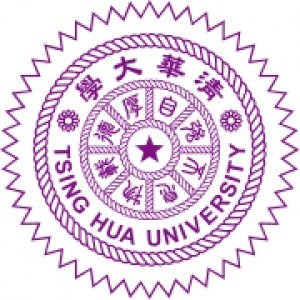Photos of university
The Bachelor's Program in Bioinformatics at National Chiao Tung University offers a comprehensive curriculum designed to integrate biology, computer science, and information technology to address the complex challenges of modern life sciences. This interdisciplinary program prepares students to analyze, interpret, and manage biological data through advanced computational techniques, enabling them to contribute significantly to fields such as genomics, proteomics, systems biology, personalized medicine, and drug discovery. Throughout the course of study, students gain a solid foundation in molecular biology, genetics, and biochemistry, paired with rigorous training in computer programming, data analysis, machine learning, and algorithms. The program emphasizes hands-on experience with state-of-the-art bioinformatics tools and research methods, encouraging students to conduct their own independent research projects under faculty supervision. Students also have opportunities to collaborate across disciplines and participate in internships with industry partners and research institutes, bridging academic knowledge with real-world applications. The curriculum is regularly updated to include the latest advancements in next-generation sequencing, data mining, and artificial intelligence in biological research. Graduates of the program are well-equipped to pursue careers as bioinformatics analysts, computational biologists, research scientists, or to continue their education at graduate levels. With a strong focus on innovation and practical skills, the Bioinformatics program at National Chiao Tung University aims to cultivate highly skilled professionals who can contribute to the biomedical and biotech industries, advancing personalized medicine, disease diagnosis, and biotechnological development.
Core courses I (Required)
B1. Basic molecular biology for bioinformatics (3 credit units)
● Molecules, Cells, and Evolution
● Chemical Foundations
● Protein Structure and Function
● Basic Molecular Genetic Mechanisms
● Molecular Genetic Techniques
● Genes, Genomics, and Chromosomes
● Transcriptional Control of Gene Expression
● Post-Transcriptional Gene Control
● Cellular Energetics
● Signal Transduction and G Protein–Coupled Receptors
● Signaling Pathways That Control Gene Expression
● The Eukaryotic Cell Cycle
● Cancer
C1. Biological computing I (3 credit units)
This course is aimed at students without prior knowledge of computer science who have desire to apply computational approaches to biological problem solving.
The goal is to provide students with a brief introduction to several topics related to basic computer science and biological computing. Students are expected to make productive use of computational techniques after they take this course. We cover the following topics in this course:
● Data Structure
● Algorithmic techniques
● Analysis of algorithms
● Computational algorithms
● Bioinformatics algorithms
S1. Fundamental Statistical Methods in Bioinformatics (3 credit units) [Previously C2]
● Descriptive statistics
● Probability
● Discrete distribution
● Continuous distribution
● Parameter estimation, confidence interval
● Hypothesis testing
● Comparative study
● Analysis of categorical data
● Correlation, regression, and analysis of variance
● Non-parametric analysis
● Clustering
● Classification
● Survival data analysis
P1. Programming Language - Python (2 credit units)
● Basic Elements of Python
● Basic statements I: branching programs and inputs
● Modules, Files, and Structured Types
● Exception handling
● Introduction to Biopython
● Object-oriented programming: classes
● Comparative study
● Data analysis toolbox
● Web programming
Core Courses II (Mandatory)
B2. Big Data in Bioinformatics - From Data-Driven Analysis to Knowledge (3 credit units)
● Genome sequence acquisition & analysis
● The human genome project
● Genomic variations
● Genomics Databases & Bioinformatics Applications (I)
● Genomics Databases & Bioinformatics Applications (II)
● Introduction to statistical genetics
● Introduction to evolutionary genomics
● DNA Microarrays: principles and applications (I)
● DNA Microarrays: principles and applications (II)
● Transcriptome - related bioinformatics databases & applications
● Protein informatics
● Structural proteomics & drug design
● Protein-protein interaction network and databases
● Databases of biochemical pathways
C2. Advanced Algorithms in Computational Biology (3 credit units)
In this course we cover the following but not limit to:
● Sequence analysis algorithms
● Machine Learning
● High-throughput Data Analysis
S2. Fundamental Statistical Methods in Bioinformatics (3 credit units)
● Advanced analysis of omics data
● Advanced analysis of sequencing data
● Maximum likelihood estimates and EM algorithm
● Bayesian methods with Monte Carlo Markov Chains
● Advanced regression and dimension reduction
● Resampling procedures and permutation tests
● Advanced clustering, classification and data visualization
● Biomedical image analysis
● Statistics in human genetics
● Biosystem network analysis
Elective Course
Dynamics in Systems
The vast advancement in technology and accumulation of information nowadays has enabled us to study biology with great details in time and space resolution, and in the molecular level. Understanding of biology at the systems level has become possible in many cases.
The dynamical aspect of these studies often include a mathematical model to describe and to predict the behavior of the system. The construction, evolution and prediction of these biological models are closely related to a branch in mathematics – nonlinear dynamics. In this course we cover the following topics:
● Central dogma in molecular biology
● Michaelis-Menten kinetics
● Appendices A and B (Alon)
● Bifurcation analysis
● Two-dimensional flows
● Oscillations in Biology
● Noises in biology-introduction
Requirements
- Master's or Bachelor's degree in biology, computer science, statistics or other related areas. (Must have the ORIGINAL copy of diplomat by registration)
- Fluency in English:
● TOEFL score of 550pbt/213cbt/79ibt.
● This can be waived for those who have obtained bachelor or master degrees from English
speaking countries. - GRE score from the general exam. However, an applicant may submit one of the following material in place of a GRE general test score:
● Any evidence of research ability such as papers published in international conferences or
journals.
● Satisfactory performance in any course or project work related to the design of algorithms
or probability such as discrete mathematics, algorithms, computational complexity, data
structure, probability, computer architecture, compiler, and computer programming. - (Required) Basic programming skills
- A Statement of Purpose that includes a research plan
- Official transcripts from academic institutions attended after senior high school
- Three letters of recommendation
Scholarships
- Once admitted, each TIGP student will receive a monthly stipend of NT$34,000 (around USD1133) for the first year.
The Bachelor’s degree program in Bioinformatics at National Chiao Tung University (NCTU) offers a comprehensive curriculum designed to equip students with the essential knowledge and skills in the interdisciplinary fields of biology, computer science, and information technology. The program focuses on integrating biological data analysis with computational methods to address complex biological questions. Students in this program learn about molecular biology, genetics, genomics, proteomics, algorithms, data structures, machine learning, and software development. The coursework emphasizes practical laboratory skills combined with theoretical knowledge, preparing graduates for careers in research, biotechnology, pharmaceuticals, healthcare, and bioinformatics industry sectors.
Throughout the program, students have opportunities to participate in cutting-edge research projects, internships, and collaborative efforts with industry partners. The curriculum is regularly updated to include the latest advances in high-throughput sequencing technologies, big data analytics, and artificial intelligence applications in biology. Students are encouraged to develop problem-solving skills and innovative thinking to tackle biological challenges through computational approaches. The program also aims to foster interdisciplinary communication and teamwork skills, essential for working in multidisciplinary research environments and industry teams.
NCTU’s bioinformatics program emphasizes a strong foundation in mathematics, statistics, and programming, ensuring students can handle complex biological datasets effectively. Graduates are prepared to pursue graduate studies or enter the workforce directly, with competencies suitable for roles such as bioinformatics analysts, computational biologists, research scientists, and data specialists in academic, government, and private sectors. The university’s state-of-the-art laboratories, research centers, and collaboration with hospitals and biotech firms provide students with valuable exposure to real-world applications of bioinformatics.
The program’s faculty comprises experts in biology, computer science, and related fields, dedicated to providing quality education and mentorship. Additionally, students benefit from the university’s extensive networks for industry connections and research collaborations, enhancing their professional development and employment prospects. Overall, the NCTU Bachelor’s program in Bioinformatics is designed to nurture innovative thinkers capable of contributing to advances in biomedical research and personalized medicine, addressing global health challenges with computational expertise.


